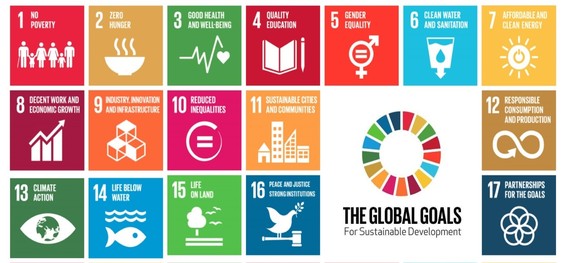The recent international conference of the Academy of Management posed a challenge to scholars and educators from around the world, just by choice of the Theme: Making Organizations Meaningful. Attending several of the sessions and listening to professors discuss research about how to link purpose and profit, I couldn't avoid thinking of a watershed event that happened almost a year ago. In September 2015 the international community adopted the Sustainable Development Goals (SDGs), a plan for achieving a better future for all -- laying out a path over the next 15 years to end extreme poverty, fight inequality and injustice, and protect our planet. The SDGs provide a shared vision for the world we want. The 17 goals also represent a guide for making organizations meaningful as they seek to address the development challenges of the 21st century.
What makes the SDGs remarkable is that they are being driven by a new group of stakeholders that, until recently, have never been actively involved in sustainable development. Businesses are now leading sources of innovative solutions that are addressing the lingering development challenges of the 21st century, and have been warmly welcomed by the United Nations Secretary-General Ban Ki-moon as important contributors to sustainability solutions.
Guided by the Ten Principles of the UN Global Compact, businesses have already started integrating the SDGs and responsible practices into their operations. The UN Global Compact pledged during the recent High-Level Political Forum (HLPF) to become a vehicle for measuring the private sector contribution to the SDGs. By retooling its data-gathering of company sustainability reports, it will capture and present relevant data to future HLPFs.
Meanwhile, an effort to Make Global Goals Local Business is underway as the Global Compact's Local Networks scale up local and regional solutions. As Lise Kingo, the Executive Director of the UN Global Compact, said recently, "Change will not come as a result of meetings held at UN Headquarters alone, but as a result of deliberate and tangible action on the ground."
But the success of business will be limited if CEOs and other managers are not informed about the SDGs, corporate sustainability, or responsible management. That is why the world's business and management schools will become powerful drivers of corporate sustainability by integrating responsible management education into their teaching, research, and activities. This will have a direct effect on the students who will become the business leaders of the future.
Business and management schools already play a key role in shaping the skills of future business leaders. But much more can be done to ensure these leaders have the skills needed to balance economic and sustainability goals.
The Principles for Responsible Management Education (PRME), an initiative of the UN Global Compact, provides a platform to raise the profile of sustainability in schools around the world and to equip today's business students with the understanding and ability to deliver change tomorrow.
Currently over 650 schools from 87 countries have already chosen to become signatories to PRME, including 44 of the Financial Times' Top 100 business schools, demonstrating a firm interest in academia for the value of responsible management education.
Even more encouraging is the passion from business school students. A recent survey has shown that over 75% of students believe all business schools should teach courses on ethics and sustainability. Meanwhile, 80% agreed that social responsibility and profitability can be compatible, and 77% say that companies should do a lot more for society and the environment.
During this month's UN Private Sector Forum in New York, PRME will announce two new initiatives that will empower business and management students to advance the SDGs by identifying, analysing, and sharing the achievements of top companies' sustainability activities. In partnership with WikiRate and AIM2Flourish, this new engagement opportunity will take advantage of the UN Global Compact's newly retooled database of company sustainability reports to validate and highlight the most significant achievements from the private sector. The data gathered will then feed into next year's HLPF's assessment of the business contribution to the SDGs.
To achieve these SDGs over the next fifteen years, we will need forward-thinking and responsible leadership. By equipping the business leaders of the future with the education they need today, we can overcome the hurdles ahead, and ensure a truly sustainable future for all. I cannot think of a more meaningful goal than that.
This post is part of a series produced by The Huffington Post and LEAP!, the United Nations PRME Working Group on the Sustainability Mindset. The series aims to feature perspectives and insights from the 76th Annual Meeting of the Academy of Management Conference, Anaheim 2016. For more information about the Conference, visit www.aom.org.
